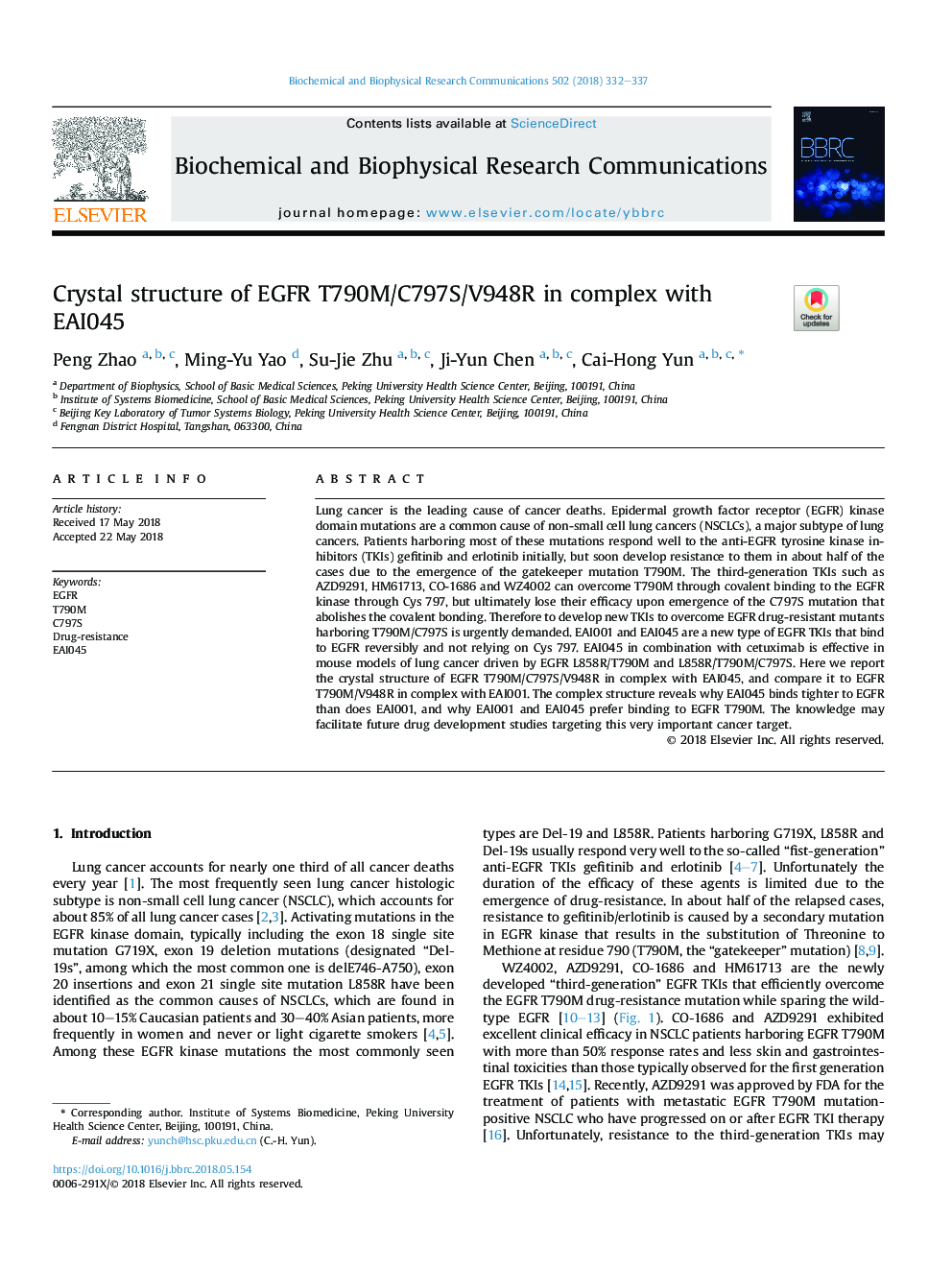| Article ID | Journal | Published Year | Pages | File Type |
|---|---|---|---|---|
| 8292346 | Biochemical and Biophysical Research Communications | 2018 | 6 Pages |
Abstract
Lung cancer is the leading cause of cancer deaths. Epidermal growth factor receptor (EGFR) kinase domain mutations are a common cause of non-small cell lung cancers (NSCLCs), a major subtype of lung cancers. Patients harboring most of these mutations respond well to the anti-EGFR tyrosine kinase inhibitors (TKIs) gefitinib and erlotinib initially, but soon develop resistance to them in about half of the cases due to the emergence of the gatekeeper mutation T790M. The third-generation TKIs such as AZD9291, HM61713, CO-1686 and WZ4002 can overcome T790M through covalent binding to the EGFR kinase through Cys 797, but ultimately lose their efficacy upon emergence of the C797S mutation that abolishes the covalent bonding. Therefore to develop new TKIs to overcome EGFR drug-resistant mutants harboring T790M/C797S is urgently demanded. EAI001 and EAI045 are a new type of EGFR TKIs that bind to EGFR reversibly and not relying on Cys 797. EAI045 in combination with cetuximab is effective in mouse models of lung cancer driven by EGFR L858R/T790M and L858R/T790M/C797S. Here we report the crystal structure of EGFR T790M/C797S/V948R in complex with EAI045, and compare it to EGFR T790M/V948R in complex with EAI001. The complex structure reveals why EAI045 binds tighter to EGFR than does EAI001, and why EAI001 and EAI045 prefer binding to EGFR T790M. The knowledge may facilitate future drug development studies targeting this very important cancer target.
Keywords
Related Topics
Life Sciences
Biochemistry, Genetics and Molecular Biology
Biochemistry
Authors
Peng Zhao, Ming-Yu Yao, Su-Jie Zhu, Ji-Yun Chen, Cai-Hong Yun,
